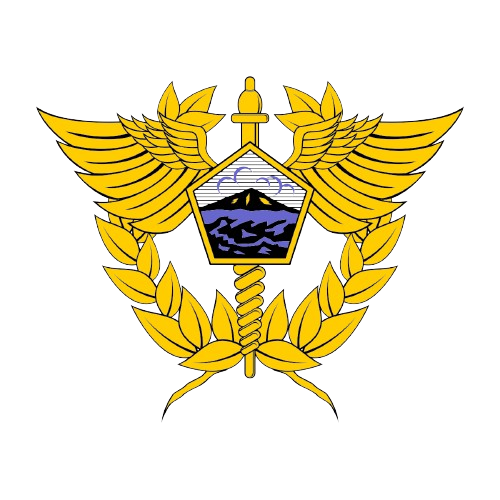Zainuddin Abdul Madjid, a prominent figure in the development of community empowerment in Indonesia, has made significant contributions through innovative initiatives like “Cek Barang Bea Cukai.” This initiative is designed to educate and assist the public in navigating customs regulations and to promote transparency in trade. The program has garnered interest from various sectors, including businesses, consumers, and government agencies, who benefit from an empowered and informed society.
The Genesis of Cek Barang Bea Cukai
Cek Barang Bea Cukai emerged in response to widespread concerns regarding customs processes in Indonesia. Individuals and businesses often face obstacles when importing and exporting goods due to a lack of understanding of customs regulations. Zainuddin recognized this gap and aimed to address it by creating an accessible platform that consolidates critical information about customs duties and regulations. This initiative is instrumental in fostering awareness and assisting individuals in making informed decisions in international trade.
Features of Cek Barang Bea Cukai
-
User-Friendly Platform: The platform provides an intuitive interface that allows users to easily navigate customs information. Users can check the status of their shipments, review necessary documentation, and comprehend customs tariffs.
-
Educational Resources: To empower users fully, Cek Barang Bea Cukai includes a rich repository of educational content. Informative articles, FAQs, and video tutorials help demystify the often-complex world of customs regulations.
-
Real-Time Updates: The initiative offers real-time updates related to customs regulations and changes, helping users stay informed and compliant with current laws.
-
Community Engagement: Zainuddin emphasizes the importance of community involvement. By hosting workshops and seminars, he encourages dialogue between customs officials and citizens, fostering a sense of collaboration and trust.
Impact on Community Empowerment
The introduction of Cek Barang Bea Cukai has significantly impacted communities across Indonesia:
-
Increased Transparency: The platform enhances transparency by providing accessible customs information, reducing the likelihood of corruption and fraudulent practices within the customs sector.
-
Enhanced Trade Competitiveness: By educating local businesses about customs procedures and their implications, the initiative helps enhance the competitiveness of Indonesian products in the global market.
-
Strengthening Local Economy: With improved knowledge of customs regulations, entrepreneurs can better navigate the import-export landscape, ultimately leading to growth and sustainability in the local economy.
Collaborations with Stakeholders
Zainuddin Abdul Madjid understands that for Cek Barang Bea Cukai to be effective, collaboration is crucial. The initiative has fostered partnerships with various stakeholders, including:
-
Government Agencies: Collaborating with customs authorities allows for the alignment of practices and policies, ensuring that the information provided is accurate and up-to-date.
-
Non-Governmental Organizations (NGOs): Partnering with NGOs enhances outreach efforts, particularly in underserved communities, ensuring that all segments of society benefit from the program.
-
Educational Institutions: By involving universities and schools, the initiative can incorporate research and training, nurturing a new generation of professionals skilled in customs and international trade.
Success Stories
The success of Cek Barang Bea Cukai can be illustrated through numerous case studies of individuals and businesses that have benefited significantly from the initiative.
-
Local Entrepreneurs: Many small and medium-sized enterprises (SMEs) have reported increased knowledge of customs regulations, leading to a better understanding of how to comply with legal requirements for importing goods. This empowerment has enabled them to expand their operations and engage more confidently in international trade.
-
Educational Impact: Schools and universities engaging in partnerships with Cek Barang Bea Cukai have incorporated customs education into their curriculums, thus preparing students for careers in international trade and business.
Future Directions
The future of Cek Barang Bea Cukai is looking promising, with Zainuddin Abdul Madjid laying out several strategic initiatives aimed at further enhancing community empowerment:
-
Digital Expansion: As digital technology continues to evolve, Zainuddin plans to expand the platform’s functionalities to include mobile applications, making it accessible on smartphones for broader reach.
-
Language Accessibility: To cater to Indonesia’s diverse population, there are plans to offer the platform in multiple local languages, ensuring that even remote communities can access vital customs information.
-
International Collaboration: Looking beyond domestic boundaries, Zainuddin aims to establish connections with international customs organizations to share best practices and refine the platform based on global standards.
Monitoring and Evaluation Mechanisms
To ensure the efficacy and relevance of Cek Barang Bea Cukai, Zainuddin has implemented robust monitoring and evaluation frameworks:
-
User Feedback Loop: Regular surveys and feedback sessions enable users to voice their challenges and suggestions, allowing continuous improvement of the platform.
-
Impact Assessment Studies: Conducting studies to measure the real-world impact of the initiative on community empowerment and economic performance will help in adjusting strategies to enhance effectiveness.
Conclusion
Zainuddin Abdul Madjid’s efforts through Cek Barang Bea Cukai epitomize the role of innovative solutions in community empowerment in Indonesia. His thoughtful approach fosters not only a greater understanding of customs regulations but also builds confidence among citizens to engage in the complexities of international trade. Through ongoing collaboration, education, and the introduction of cutting-edge technologies, Zainuddin continues to pave the way for a more informed, empowered, and equitable society in Indonesia.

